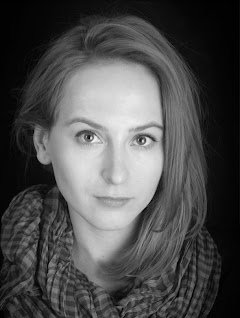Beat
I concentrate on social and political issues, covering daily news and working on my own documentary projects. Currently, I’m primarily focused on the North Caucasus, uncovering issues that are under-reported or ignored.
One Shot

“I like this image, even though it seems simple. Pictures of little boys riding bicycles with coloured wheels have become a sort of cliche from Afghanistan. For me, this peaceful photograph from the restless Russian region of Dagestan became a kind of metaphor, symbolising the state of a region torn apart by religious and social contradictions.”
Profile
Pictures of the Second World War in my family photo album are my first and strongest memories of photography. My grandparents were war veterans and they shot and collected a lot of pictures during the war. The images are mostly portraits, and I still remember the people’s faces.
I used to work as a radio journalist covering political issues in Moscow, and in 2008 I mainly reported on opposition rallies that were brutally dispersed by the police. One day, I realised that words are not powerful enough to tell the story. I decided to be silent and to narrate with images instead. I moved from radio journalism to photojournalism.
My first assignment was in 2009 when the newly elected President Barack Obama came to Moscow. He had an official meeting with the opposition leaders, and only two Russian photographers where allowed to cover it. I was one of them, working as a freelancer for a news agency. I remember that there were a lot of the Russian security people at the entrance and they checked everything: my documents, my equipment… At one point, they became nervous about an orange ribbon in my hair. They asked me whether I supported the ideas of the Orange Revolution and only let me in when I agreed to remove the ribbon.
Every assignment is a new challenge. I can’t anticipate the details, but I have to be ready to deal with them, no matter what they are. The great photographer Bill Eppridge told me: “You should keep all your energy and collect every small experience you can get, to be ready for the only one crucial moment in your photojournalistic career”.
The most important assignments for me were the Pussy Riot performance in Moscow's Cathedral of Christ the Saviour and the so-called “March of Millions” rally on May 6, 2012 in Moscow. In both cases, nobody could predict that they would have such huge consequences. At the time that I was covering them, I didn’t feel like I was witnessing the history of my country and I didn’t realise that the pictures would become such important testimony. It was mostly intuition that helped me to cover these assignments.
I’m inspired by stories that are put together with dedication, thorough investigation, objectivity and humanity. I think Eugene Smith's photo essay “The Country Doctor” is amazing. I was excited by Robert Capa’s reportage during the 1944 Normandy invasion. And I’m inspired by the work of James Nachtwey, who witnessed the devastating effects of the Rwandan genocide in 1994 and made efforts to raise awareness about it worldwide.
When I’m shooting, I have nothing in my mind except the image of what is going on. Usually I don’t even hear what’s happening.
I learnt my biggest lesson from my personal project in Dagestan: “The Hidden War In The Land Of Mountains”. When I started the project in 2011, everybody around me – colleagues, friends, relatives – frightened me by sharing stereotypes about Dagestan, an area of diverse religions and traditions, where the news is often about explosions, kidnappings, special forces' operations, suicide bombers and terrorists. Nobody believed I would manage to live and work in the region, but I decided that as a photojournalist I had to investigate this big, under-reported story in my country. At the beginning, I was very scared just of going there, but the more time I have spent with people and travelled around, the more confident I have become.
I respect my parents most of all. They gave me the opportunities and the freedom to become myself.
Behind the Scenes

